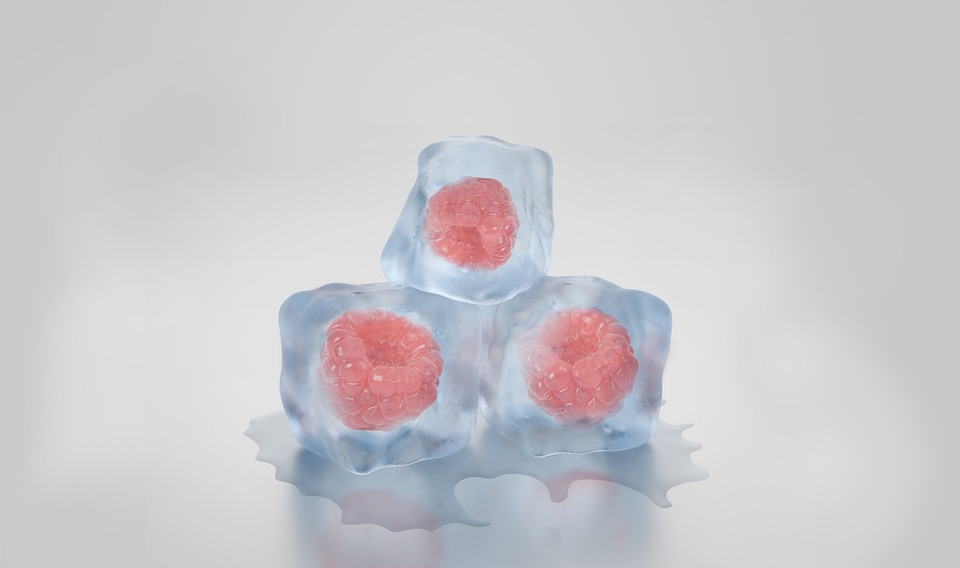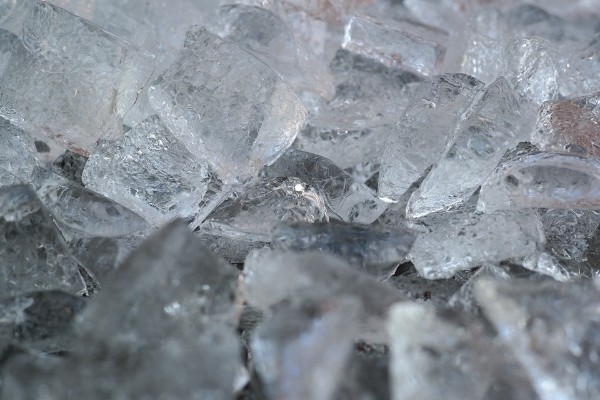Have you experienced odd cravings for ice while expecting? Do you wonder if there is a deeper significance to it, or does your child simply enjoy cold foods?
Our tastes undergo many strange changes during pregnancy, and craving ice is just one of them.
Understanding the root of your ice craving during pregnancy and why it occurs can help identify and stop other health issues early on, even though it may seem like nothing more than a quirk.
Why You Be Craving Ice When Pregnant
Pica is a condition whose exact cause is still unknown, and our knowledge of it is somewhat limited.
Studies have connected iron deficiency to a pica, suggesting that deficiencies may contribute to the condition. It is interesting to note that low iron level pica patients did not crave or consume foods high in naturally occurring iron.
In a recent study, participants who were not anemic reported very low rates of pagophagia (4%), whereas those who were anemic reported much higher rates (56%). Additionally, it was discovered that crunching on the ice gave mentally weak study participants a boost. In contrast to non-anemic participants, those who were anemic displayed significantly faster response times on a neuropsychological test.
What Is Pica?
Cravings for edibles or non-food items with no nutritional value are referred to as “pica.” Pica can manifest in less severe ways as well, although you may have heard some of the crazier tales about it, such as addictions to eating dirt or chalk.
Why does this matter to a pregnant woman? The diagnosis of pica includes cravings for ice. Ice-chewing impulses can occasionally be harmless. It may also be a troubling indication that your body is trying to tell you something crucial.
Unfortunately, there isn’t a single explanation that works for all women who crave ice, so you can only speculate. However, a mineral deficiency is the most typical cause of the urge to eat ice for pregnant women.
Things Your Ice Craving Could Mean
Even though it seems innocent, there are a few physical and psychological things that your ice cravings might be trying to tell you.
They will frequently coexist with other symptoms, so keep an eye on yourself before getting too alarmed and calling for help.
Anemia And Iron Deficiency
Most people’s cravings for ice are caused by anemia, especially if they are regular. Due to the demands pregnancy places on a woman’s body, anemia is much more common in pregnant women.
When your body is unable to produce enough red blood cells to keep you healthy, anemia develops. It’s the most prevalent blood disorder in the US, and it can frequently cause fatigue, pallor, and insomnia.
Because it isn’t coming from you voluntarily, pica is frequently a sign that your body is attempting to obtain the iron it needs from other sources.
These are some iron-rich foods that can help you get the iron you need:
- Meat and chicken.
- Fortified grains.
- Beans and legumes.
- Spinach.
The most typical pregnancy-related anemia is iron deficiency anemia. Despite the lack of a direct link between chewing ice and iron deficiency anemia, some claim that it gives you more energy, which lessens anemia-related weakness and breathlessness.
Toothache Ang Gum Problems
Have you ever utilized ice to reduce pain or swelling? Ice cravings could be a coping mechanism for a tooth or gum condition.
Although there isn’t much evidence to support it, it has been reported before and is something to consider. When you chew or brush your teeth, do you experience any tenderness? Do you bleed when you use dental floss?
In that case, think about calling your dentist. A checkup and cleaning might be necessary anyhow.
Ice chewing can result in sore jaw muscles and dental problems like chipped or cracked teeth.
Obsessive-compulsive Disorder (OCD)
Despite being much less common than anemia, mental health problems can be the root of your pica. The urge to carry out particular rituals repeatedly, like eating ice, is a common feature of OCD.
Compulsions will reduce the anxiety that is accumulating and is frequently brought on by obsessions, which are repeated worries. Therapy and perhaps a medication is frequently used to treat OCD and other emotional disorders.
PICA can indicate other mental health conditions in addition to this specific disorder. Talk to your doctor about where to go for a formal diagnosis and treatment if you think you might have OCD or other mental health issues.
Stress
27% of adults suffer from emotional eating. Overeating or undereating are two possible outcomes. Both of these diet issues, which are frequently stress-related, could result in ice cravings.
This one, I’ve personally gone through. Every time I was about to sit down and work on something important, like filing my taxes, I developed the habit of getting a cup of ice. It was useful to have something to mindlessly munch on while I buckled down, preventing me from overeating and feeling sated.
This particular cause of ice cravings is less severe than the others and doesn’t need to be treated by a doctor unless it starts to affect your dental health or personal choices.
Think about the causes of your stress and make an effort to reduce or get rid of them from your life. In the long run, it will be better for you and your infant. The reward center in our brains is stimulated when we chew ice or other forms of pica, increasing our cravings.

Can Ice Cravings Indicate Pregnancy?
Ice is one of the most typical cravings that many pregnant women experience early on.
When you are expecting for the second or third time, you may be able to spot these cool pregnancy cravings as a sure sign, even though a first-time mother may not understand their significance.
Despite the possibility that ice cravings are a sign, there are a lot more accurate ways to determine whether you are pregnant. The best ways to find out if you’re pregnant are with a pregnancy test from the store or by seeing your doctor.
Are There Benefits To Eating Ice?
You have already been warned about the risks and drawbacks of satisfying your craving for ice. There is some good news though!
Eating ice is a fantastic way to stay hydrated because it is simply frozen water. Get at least eight cups of water per day while you’re pregnant—it’s crucial now more than ever.
The dreads of morning sickness can also be eased by consuming ice. During the first trimester, many pregnant women consume ice to treat their nausea and avoid becoming sick. Eating ice can be a secure way to cool off when you’re feeling particularly warm during a summer pregnancy.
Can Crunch On Ice Cubes Damage My Teeth?
Your dentist may not be too keen on you eating excessive amounts of ice because it can harm teeth, even if your ice cube habit is not brought on by a vitamin deficiency. Human teeth are not made for crushing ice cubes; rather, they are made for eating softer foods.
Ice chewing can weaken tooth enamel, making teeth more susceptible to decay, and can even make people more sensitive to both hot and cold foods.
Ice is one of the least harmful cravings you can have, but it is still important to keep in mind that there are risks to your diet and teeth, especially if you don’t address a potential underlying cause of anemia.
Your iron levels can be checked with a quick blood test. Ask specifically to learn the ferritin concentration. A ferritin level under 15 μg/L is regarded as iron deficient in adults who are anemic. It is highly suggestive between 15 and 30 μg/L.
Should You See A Doctor About Your Ice Cravings?
If your desire to eat or chew ice keeps getting worse for at least a month, Pasricha advises consulting a doctor. To check for iron deficiency anemia, which needs to be assessed and treated, your doctor will probably run some routine lab tests.
A dental examination is another smart move. Enamel can become damaged over time from repeatedly chewing ice. Request a dental exam from your physician. If you should visit the dentist, they can advise you on that.
How Can You Stop Your Ice Cravings?
The next step after seeing your doctor is to develop a strategy to stop, or at least lessen, your ice cravings.
Your doctor may begin iron replacement therapy and supplements if anemia is the root of your cravings. The desire for ice usually goes away once your iron stores have been replenished.
Your doctor might investigate psychological causes for the craving if anemia isn’t the underlying factor. “Some people may have craved ice due to psychological stressors, in which case, cognitive behavioral therapy has been shown to be helpful,” says Pasricha.
The Bottom Line
If you have been ice-chewing compulsively for more than a month, you should get checked out for a more serious medical or psychological problem.
Make an appointment to see your doctor if you are tempted to chew on ice and are not simply thirsty.




